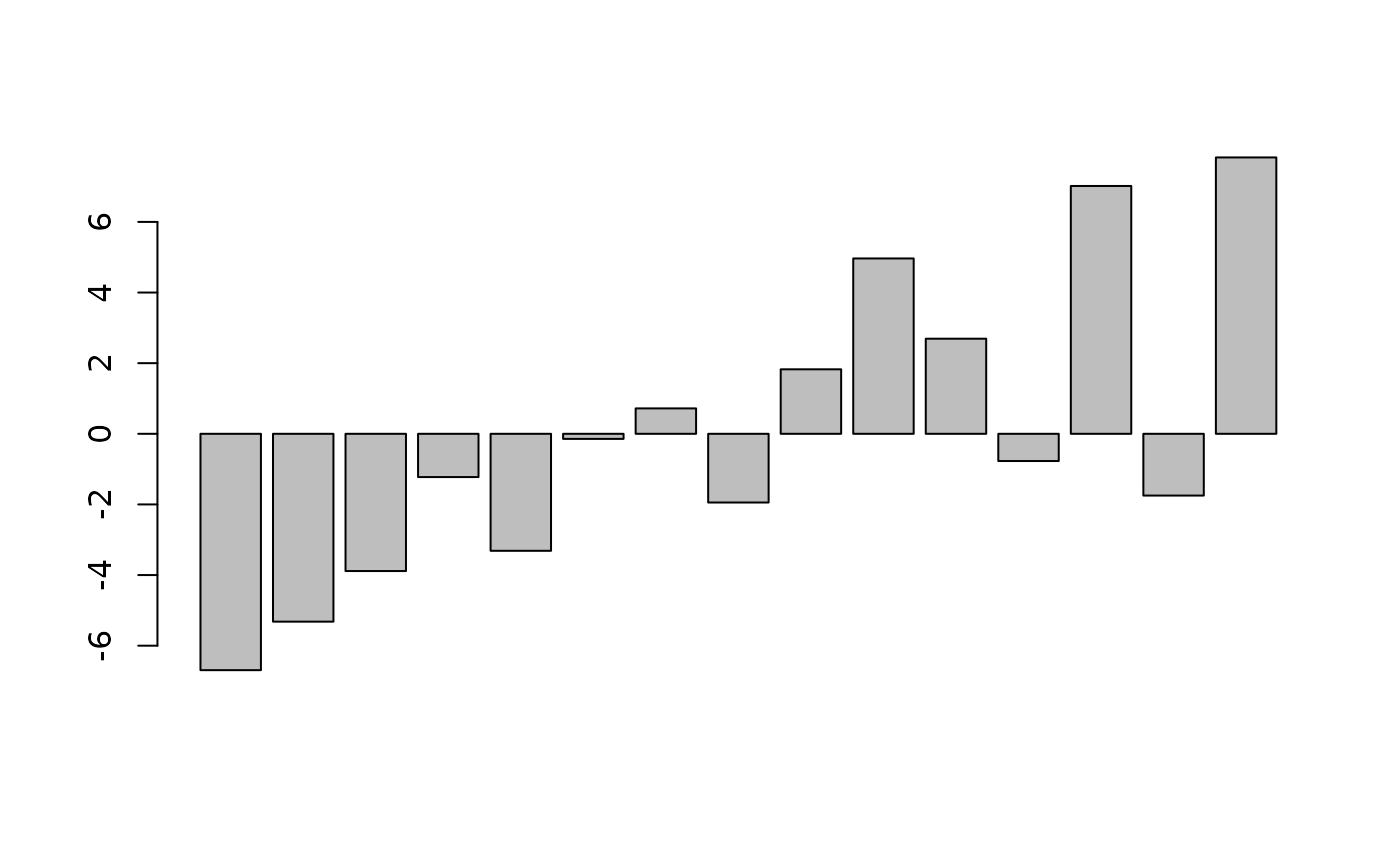Fruit Production
clementines.RdThe clementines is a data set containing the fruit production of 20 clementine trees during 15 years.
Usage
data(clementines)Source
Tisné-Agostini, D. (1988) Description par analyse en composantes principales de l'évolution de la production du clémentinier en association avec 12 types de porte-greffe. Rapport technique, DEA Analyse et modélisation des systèmes biologiques, Université Lyon 1.
Examples
data(clementines)
op <- par(no.readonly = TRUE)
par(mfrow = c(5, 4))
par(mar = c(2, 2, 1, 1))
for(i in 1:20) {
w0 <- 1:15
plot(w0, clementines[, i], type = "b")
abline(lm(clementines[, i] ~ w0))
}
 par(op)
pca1 <- dudi.pca(clementines, scan = FALSE)
if(adegraphicsLoaded()) {
g1 <- s.corcircle(pca1$co, plab.cex = 0.75)
g2 <- s1d.barchart(pca1$li[, 1], p1d.hori = FALSE)
} else {
s.corcircle(pca1$co, clab = 0.75)
barplot(pca1$li[, 1])
}
par(op)
pca1 <- dudi.pca(clementines, scan = FALSE)
if(adegraphicsLoaded()) {
g1 <- s.corcircle(pca1$co, plab.cex = 0.75)
g2 <- s1d.barchart(pca1$li[, 1], p1d.hori = FALSE)
} else {
s.corcircle(pca1$co, clab = 0.75)
barplot(pca1$li[, 1])
}

 op <- par(no.readonly = TRUE)
par(mfrow = c(5, 4))
par(mar = c(2, 2, 1, 1))
clem0 <- pca1$tab
croi <- 1:15
alter <- c(rep(c(1, -1), 7), 1)
for(i in 1:20) {
y <- clem0[,i]
plot(w0, y, type = "b", ylim = c(-2, 2))
z <- predict(lm(clem0[, i] ~ croi * alter))
points(w0, z, pch = 20, cex = 2)
for(j in 1:15)
segments(j, y[j], j, z[j])
}
op <- par(no.readonly = TRUE)
par(mfrow = c(5, 4))
par(mar = c(2, 2, 1, 1))
clem0 <- pca1$tab
croi <- 1:15
alter <- c(rep(c(1, -1), 7), 1)
for(i in 1:20) {
y <- clem0[,i]
plot(w0, y, type = "b", ylim = c(-2, 2))
z <- predict(lm(clem0[, i] ~ croi * alter))
points(w0, z, pch = 20, cex = 2)
for(j in 1:15)
segments(j, y[j], j, z[j])
}
 par(op)
par(mfrow = c(1, 1))
par(op)
par(mfrow = c(1, 1))